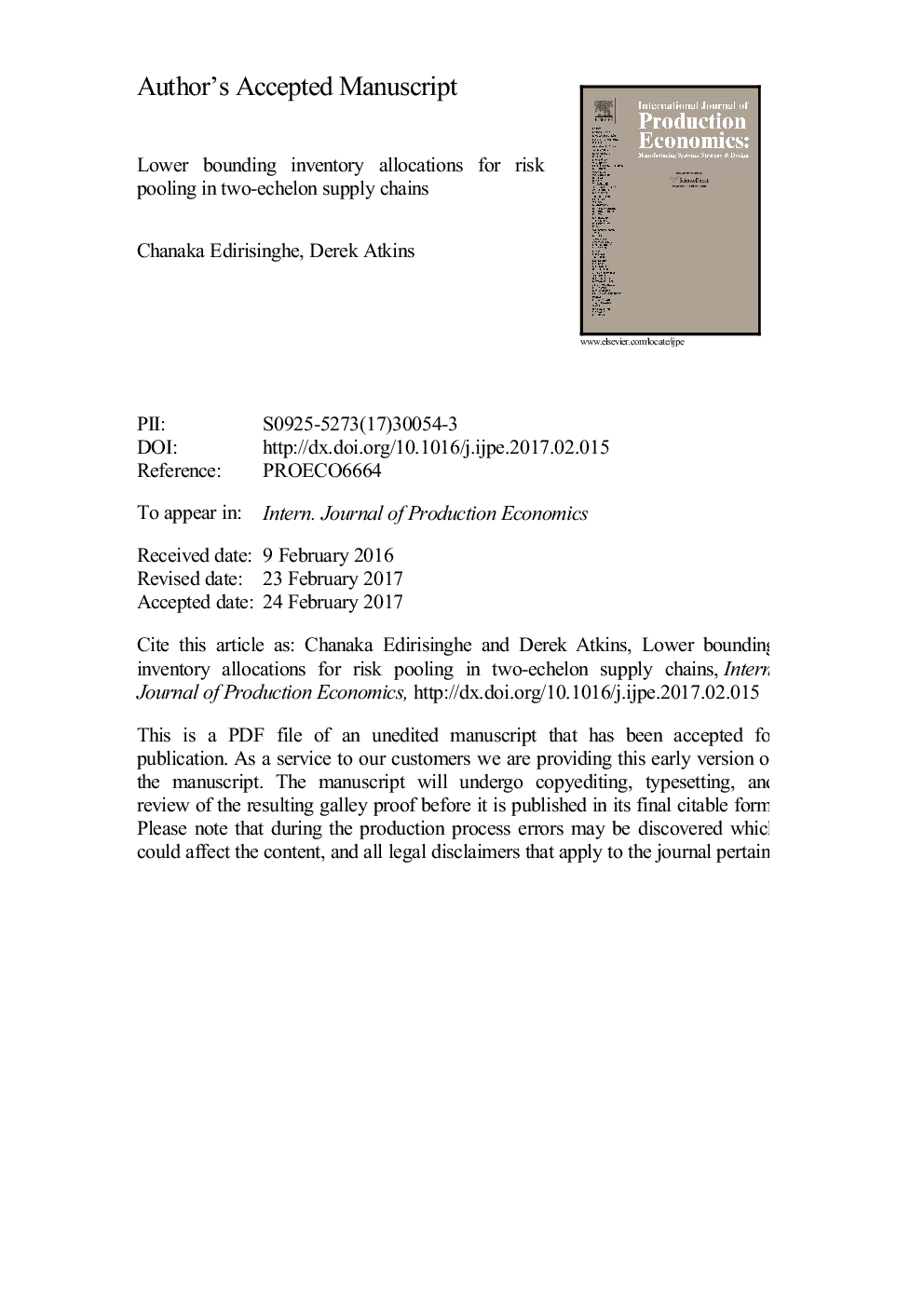ترجمه فارسی عنوان مقاله
تخصیص موجودی محدوده پایین برای جمع آوری ریسک در دو زنجیره تامین
عنوان انگلیسی
Lower bounding inventory allocations for risk pooling in two-echelon supply chains
| کد مقاله | سال انتشار | تعداد صفحات مقاله انگلیسی |
|---|---|---|
| 110219 | 2017 | 30 صفحه PDF |
منبع

Publisher : Elsevier - Science Direct (الزویر - ساینس دایرکت)
Journal : International Journal of Production Economics, Volume 187, May 2017, Pages 159-167
ترجمه کلمات کلیدی
زنجیره تامین دو حلقه، جمع آوری ریسک، مرزهای پایین و اکتشافات،
کلمات کلیدی انگلیسی
Two-echelon supply chain; Risk pooling; Lower bounds and heuristics;
ترجمه چکیده
این مقاله به بررسی تاثیر جمع آوری ریسک می پردازد زمانی که یک تامین کننده واحد یا انبار یک محصول واحد را به خرده فروشان متعدد در یک چارچوب دو نفره توزیع می کند. تقاضای خرده فروشان تصادفی است و ممکن است همبستگی داشته باشد. در مقایسه با حمل و نقل سفارشات کامل از انبار در یک بار به خرده فروش، حمل و نقل در دو دوره در یک چرخه موجودی در قالب دو الگوی (با توجه به تقاضای در زمان واقعی) عملکرد بهبود یافته سیستم را بهبود می بخشد، هر دو از نظر هزینه و توزیع موجودی در سیستم. سیاست محدودیت موجودی محدوده تعیین شده است که برای بررسی عملکرد سیستم تحت دو اکتشافی ساده استفاده می شود. سیاست های تخصیص براساس توزیع نهایی تقاضای خرده فروشان است، اما در تست محاسبات ما تحت توزیع احتمالی تقاضا مانند عددی طبیعی یا منفی کاملا موثر هستند. محاسبات ما همچنین شواهدی را نشان می دهد که بهبود قابل ملاحظه ای در تقاضای غیرقابل انتظار مورد انتظار در طی یک چرخه موجودی می تواند به دلیل جمع آوری ریسک در یک سیاست تخصیص دو مرحله ای به دست آید.

